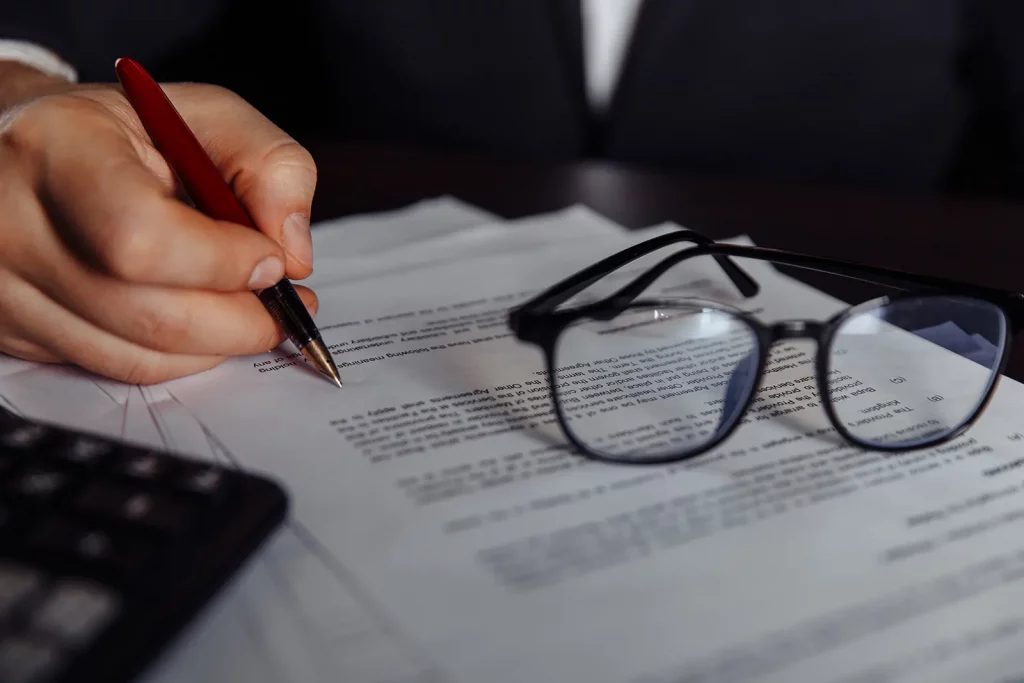What is a Power of Attorney & How to Notarize for Power of Attorney
A Power of Attorney is a written authorization that allows a person to act or designate another person to conduct private affairs or conduct some other legal matters on their behalf. The person authorized to act is called an agent, grantor, or principal.
A Power of Attorney has to be signed in the presence of a licensed Notary Public for the document to be valid. A Notary Public is responsible for witnessing the signer’s signature and ensuring that they are signing willingly. In New York State, under the new law, the person designating a principal must sign the Power of Attorney document in the presence of two witnesses, one of which can be the notary. How to notarize for power of attorney? Read more.

Reasons a Power of Attorney Document May Be Required
People may choose to get a POA when:
- Making a financial decision
- Making medical decisions
- Making end-of-life decisions and choosing a beneficiary or legal representative to make legal decisions for their affairs
- Protecting or claiming a personal estate and assets
- Operating business interests or transactions
How to Notarize for Power of Attorney & Complete a Notarized Power of Attorney
The first step on how to notarize for power of attorney is for the notary to complete the acknowledgement form, which should be attached to the Power of Attorney document if the notarial wording is not already printed on the document. The POA should identify the Principal, who is the person granting legal authority to a personal representative that they choose. The document should include the person’s full legal name, and it should detail what authority is being handed over pertaining to financial and/or medical affairs.
Next, the notary is to affirm that the signer appeared in person to acknowledge and sign willingly, that the terms of the Power of Attorney document are intended as written, and that their signature is the correct signature that belongs on the document. The Power of Attorney document should be titled “Power of Attorney.” The POA should state the date that the document goes into effect or specify the circumstance in which it would be enacted.
The next step is to witness the signature of the Power of Attorney document and notarize the document by signing and imprinting the notary stamp or seal on it. Witnessing can be done in front of a notary or two unrelated witnesses, depending on the requirements of the state. In either case, it is important that the person signing the document be positively identified before witnessing their signature.
After all, parties have signed and verified their identities, the appropriate seals or stamps must be applied to certify that the document has been properly notarized. Once the document is completed and all parties have signed, it is ready to be used in the legal process. In order for a Power of Attorney document to be considered legally binding, it must be properly witnessed and notarized according to the laws of the state where it was created. This protects all parties involved from potential fraud and ensures that the document is recognized as legally valid.

The final step on how to notarize for power of attorney is for the notary to record the notarization in their notary journal if this is a state requirement. The requirements for notarizing a power of attorney document will vary from state to state. Please check your state rules and regulations for executing a POA and adhere to your state laws.
Are Witnesses Required for a POA Transaction?
The required presence of witnesses during a POA signing will vary from state to state. In New York State and under the old law in New York, witnesses were not required to execute a POA. Under the new law, the person who is designating an agent or principal still needs to have their signature notarized, but they must also sign the POA in the presence of two witnesses, one of whom can be the notary.
The witnesses cannot be individuals named in the document as agents or receive gifts from the agent at a later date. It is important to select witnesses who have no financial interest in the POA and who are disinterested parties.
It’s possible, as a notary, you might be requested to witness a signature. Check out our article on When can a Notary Also be a Witness?
Do I need to Hire an Attorney to Have a POA Notarized?
Most Powers of Attorney documents are not required to have a lawyer notarize the document. This could change depending on the POA documents and the contract terms. There may be instances where further execution of the POA document is required. Typically, notaries are licensed and knowledgeable about notarizing POAs without an attorney.
In some cases, a lawyer’s notarization may be necessary or required in order to make the Powers of Attorney document legally binding. This typically applies if the POA documents alter rights of ownership, involve complicated legal matters, or are related to real estate. In these cases, professional advice should be sought and an attorney should review the POA document before it is notarized. In addition, depending on the state, some POA documents may require a lawyer’s notarization in order to be valid.
Therefore, it is important for those creating a Powers of Attorney document to check with their local laws and regulations when determining whether or not their document needs an attorney’s notarization in order to be legally valid.
What is the Fee to Have a POA Notarized?
When notarizing a POA, the notary should follow their state laws regarding the fee amount that are permitted to charge for an acknowledgement or Jurat. For New York State, the total fee is $2.00 per signature for an acknowledgement and $2.00 per signature for a Jurat. You can charge more if you are acting as a mobile notary and travelling to the client to perform the notarization.
We hope you enjoyed this article on how to notarize for Power of Attorney is a very common document that most notaries see on a regular basis. It is very important as a notary to familiarize yourself with this type of document and make sure you are current on your state’s rules pertaining to notarization requirements and other guidelines related to a Power of Attorney.
For more insight, americanbar.org has a great article on Power of Attorney.

Kim Jones
Notary Roc City Notary Services
Kim Jones is a veteran mobile Notary and Notary Signing Agent with over 15 years of experience. Kim is the Owner and Operator of Roc City Notary Services in upstate NY.
Notary Jane: Kim Jones
Instagram: @roccitynotary
Website: RocCityNotary.com

